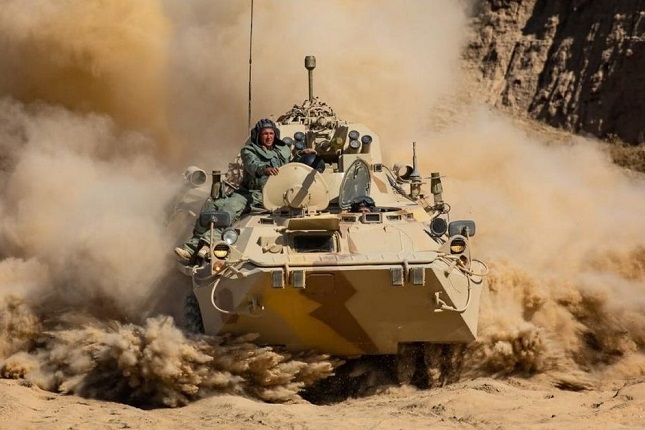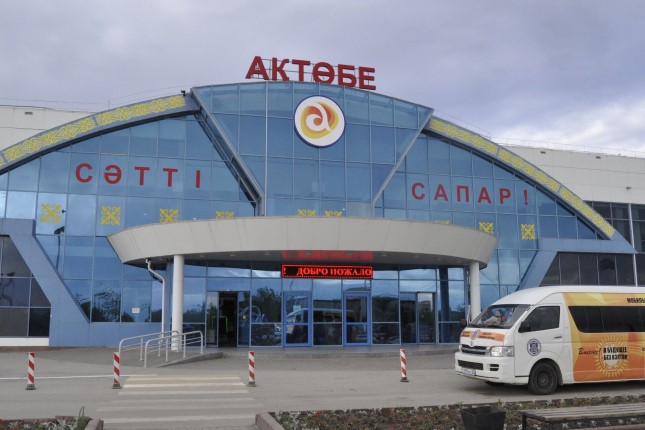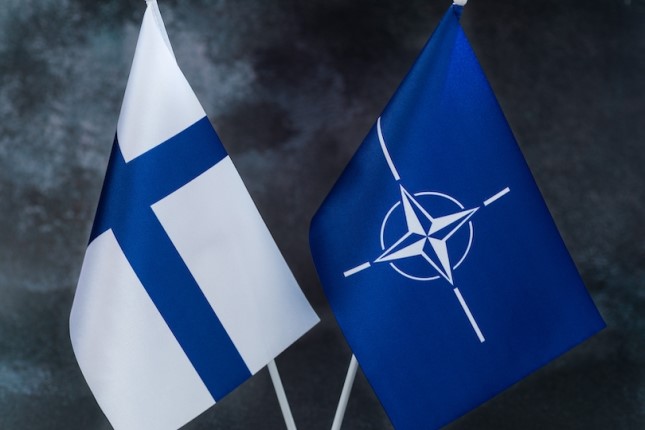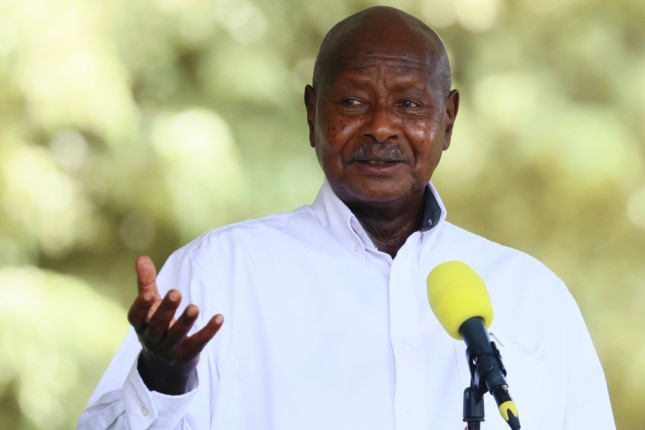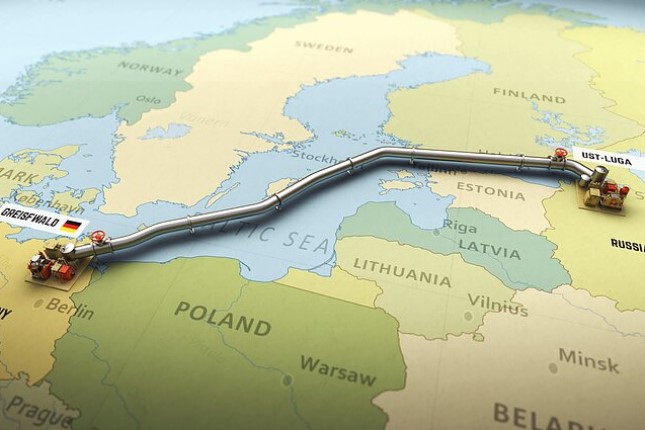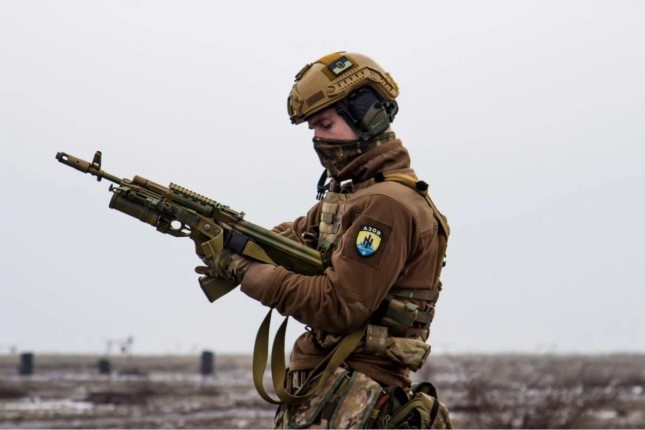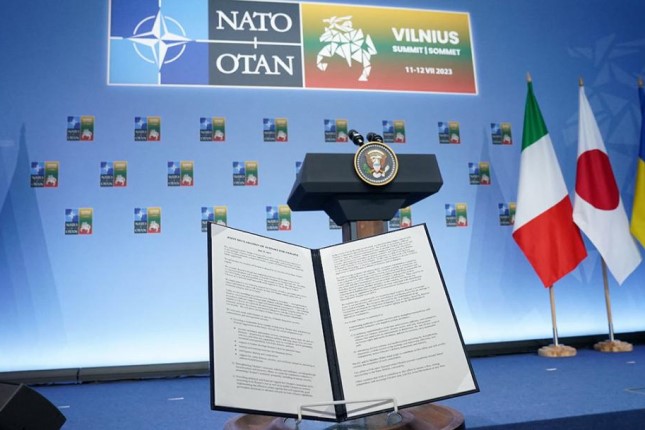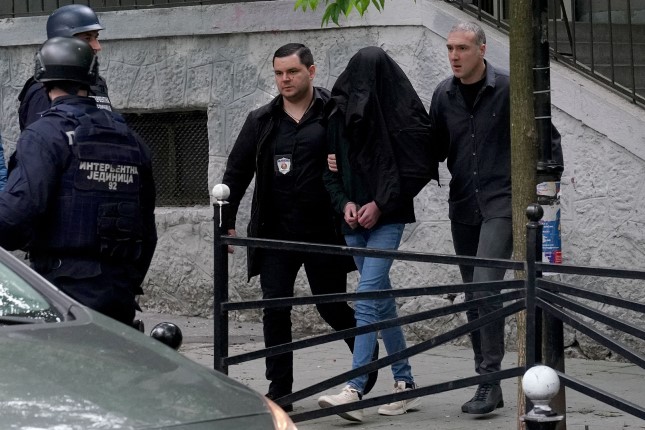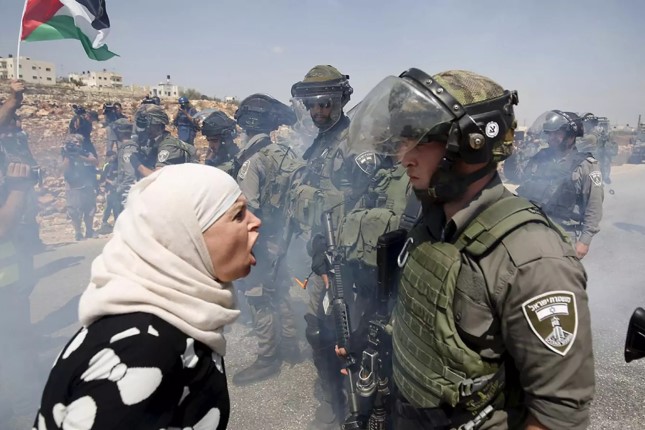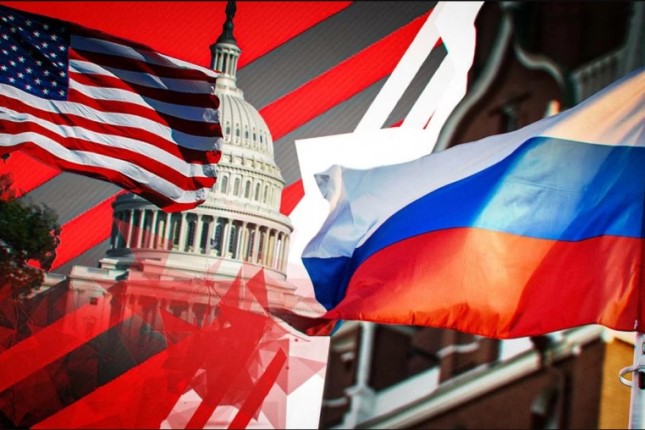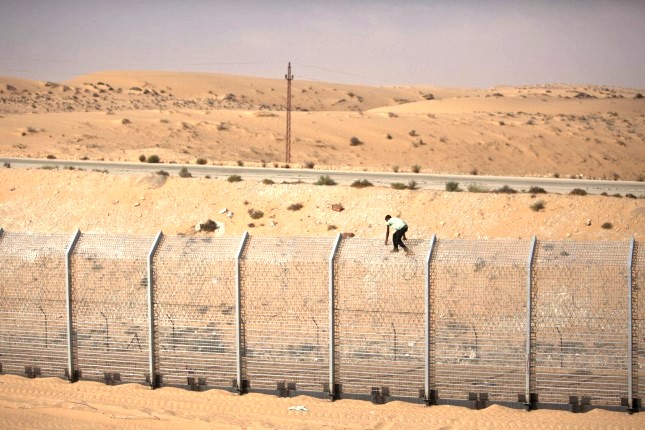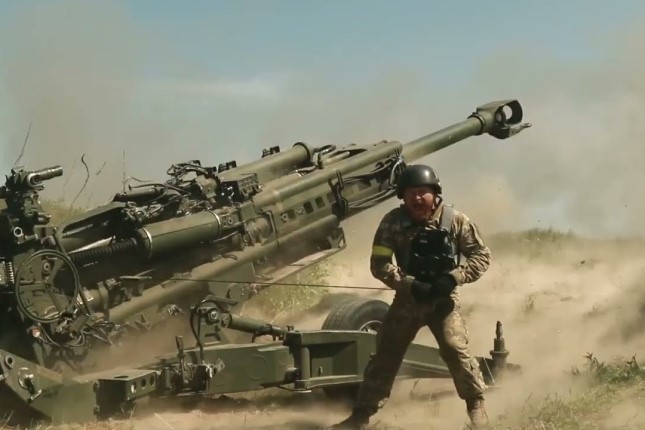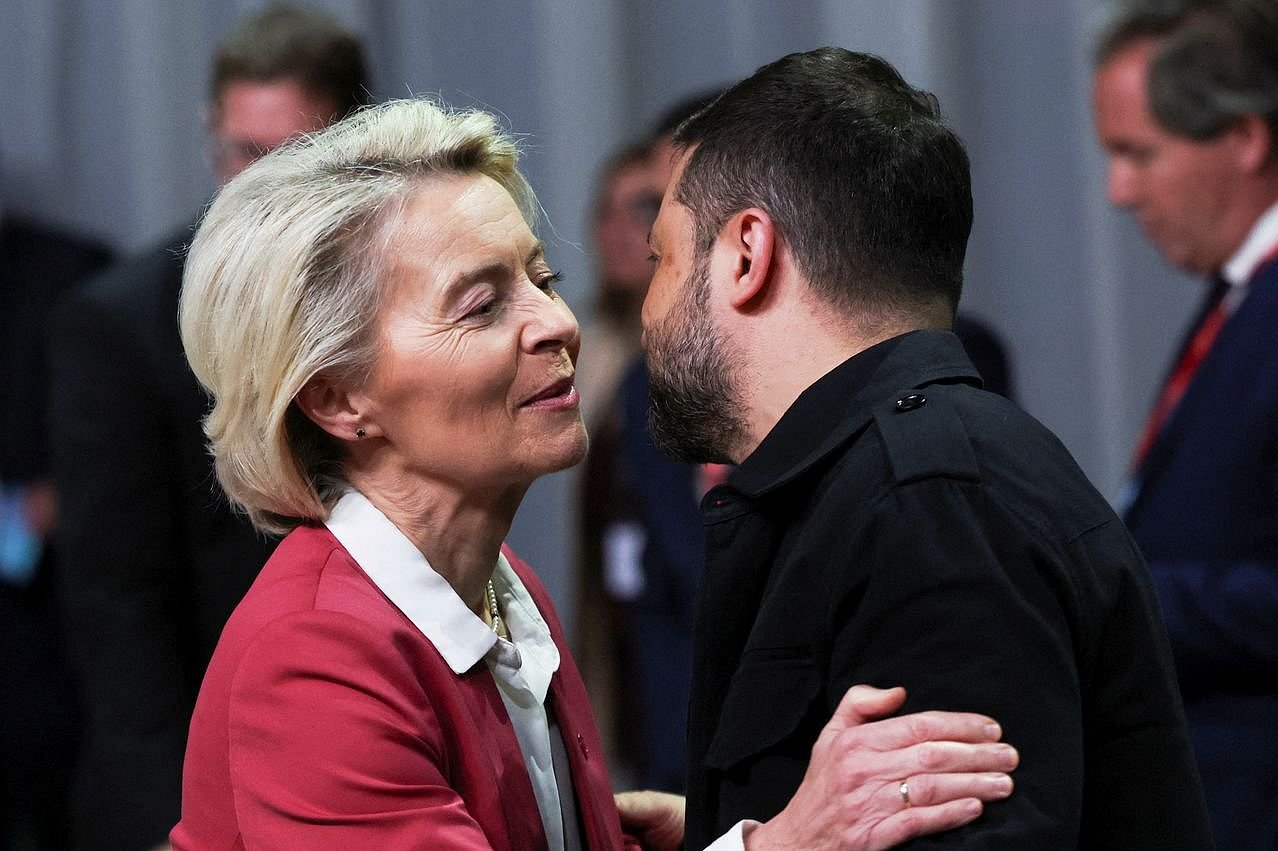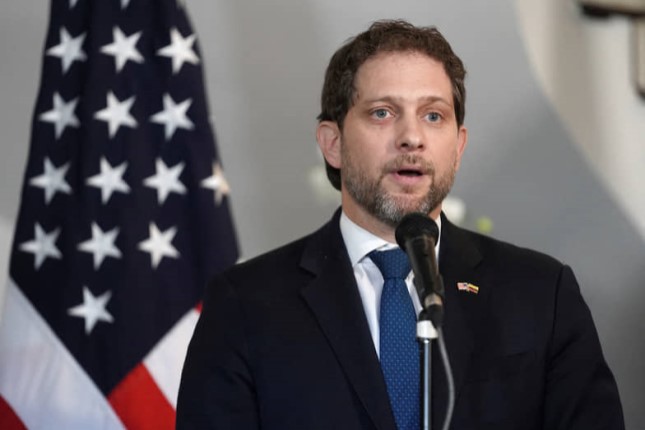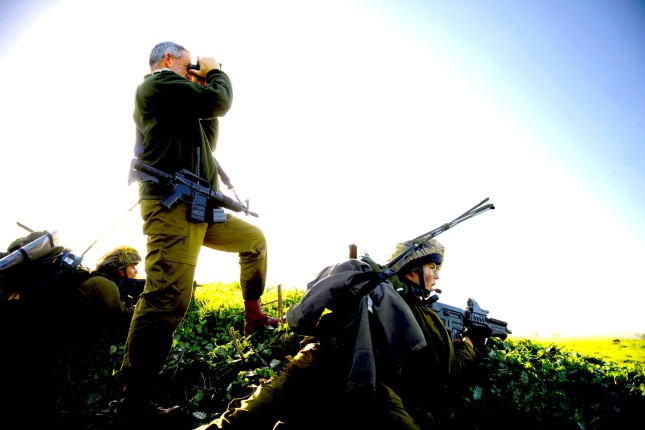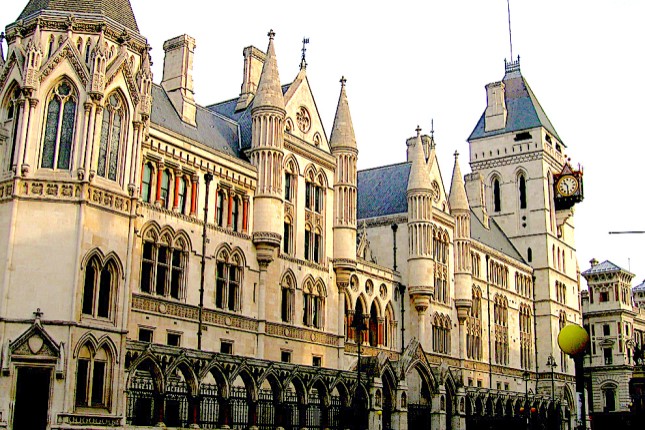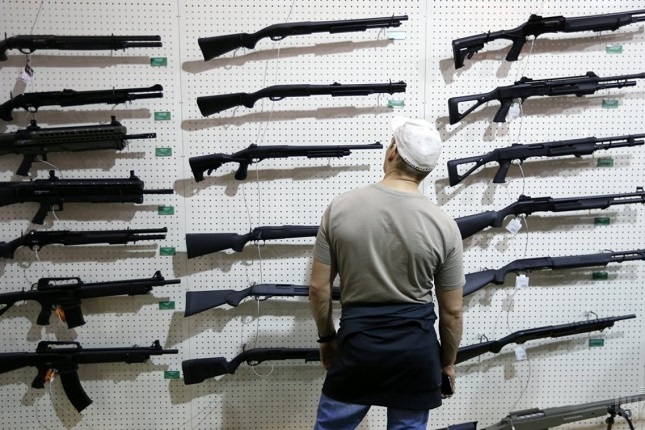Mid-August saw Tajikistan play host to a US-sponsored military exercise, code-named Regional Cooperation 2022, involving military personnel from the United States, Tajikistan, Uzbekistan, Kazakhstan, Kyrgyzstan, Pakistan, and Mongolia. The exercise, officially billed as focusing on "enhancing multinational stability operations" and counterterrorism, was used to promote combat interoperability among participating nations.
Regional Cooperation is a routine annual exercise. However, this time it is taking place against an unusual and "special" background: while Russia is at war with Ukraine, directly supported by the US with weapons supplies and its military advisers, Russia's Collective Security Treaty Organisation allies are participating in US-sponsored manoeuvres. Furthermore, US military and political involvement in Central Asia and Afghanistan has intensified dramatically over the last six months. By pulling Tajikistan and Uzbekistan into this cooperation, the US is gearing up to establish a new Central Asian military front against Russia.
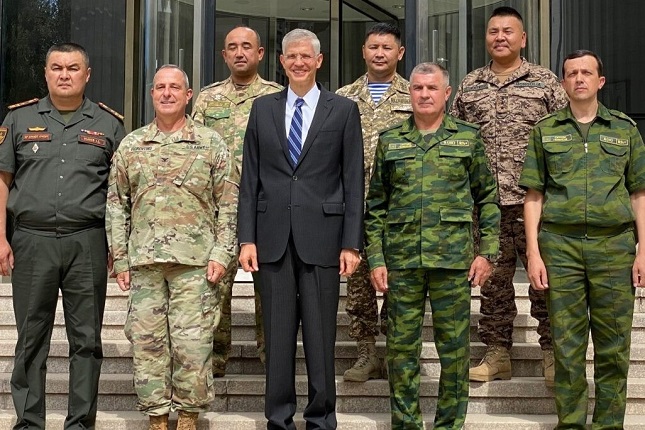
US Ambassador John Mark Pommersheim posing with representatives of the countries participating in the Regional Cooperation 2022 military exercise. Dushanbe, Tajikistan, August 2022. Photo: Embassy of the USA.
Sponsorship of and participation in military exercises is by no means the only model used by the US to involve Tajikistan and other Central Asian countries in helping America pursue its plans for the region. By the same token, it is far from being the primary one. Since early June, Tajikistan's Foreign Ministry and State National Security Committee officials have been involved in closed-door meetings focusing "on the region's pressing security issues". In all likelihood, these meetings addressed the issue of providing military and logistical assistance to the anti-Taliban coalition in neighbouring Afghanistan that the US had hastily cobbled up together out of the fragmented and decimated tribal and regular military units still loyal to the toppled pro-American regime.
From the outset, official Dushanbe has maintained a principled and resolutely anti-Taliban stance and, therefore, has a vested interest in access to US military assistance. But the Americans would not be themselves if they had not made such assistance conditional on the republic's agreement to carry out political reforms in the country, a demand they had put forward to Tajikistan's government. This was the reason why "the core cycle of US-Tajikistan discussions" that took place in early August was conducted under the chairmanship of US Peace Corps, whose "donors and affiliated NGOs" would be expected to set the groundwork for strengthening the new format of Tajikistan's cooperation with the Americans.
At the heart of this new format of engagement is the idea to embed a US-controlled network of non-profit organisations (made up of over 50 organisations affiliated with Paimoni Millii Tochikiston (National Alliance of Tajikistan)) together with the Raoul Wallenberg Center for Human Rights (RWCHR), the Buzurgmehr Yorov Foundation, and several NGOs including Javononi Peshsaf, Jahoni Boz, Asha Cultural Center, Youth House, Mercy Corps Tajikistan, OSI – Tajikistan, and others, in all key security and community outreach programmes in Tajikistan.
The US State Department and Peace Corps, working together with their donors, consider signing a series of framework agreements focusing on security, trade and deeper cooperation between the NGOs and foundations with the government of the Republic of Tajikistan for an estimated total of over USD 37 million through the end of 2025. The plan of agreed-upon measures includes secondments of journalists and bloggers to Poland, Lithuania, Latvia, Estonia, France, and the UK, where they will be trained to use "novel approaches to covering social conflicts and working in areas with a high risk of war". Experience has shown time and again that should a war really break out, these "progressive activists" would tend to lean toward backing the most radical of Islamists.
So, what compels President Emomali Rahmon's rather heavy-handed and oppressive regime to engage in this form of cooperation and be willing to bring the "Trojan horse" into the country? There are two reasons for that. The first reason is the need to be able to stand up to the Taliban and the desire to try to pull Tajik-speaking Northern Afghanistan into Tajikistan's orbit of influence. The second reason is the dependence of President Rahmon's influential inner circle on US funding. As a result, the US is essentially trying to kill two birds with one stone by getting the Tajiks and the Afghan opposition ready for a war with the Taliban (with whom Washington continues to maintain active dialogue), on the one hand, and by using its playbook methods to prepare for triggering an Islamist turmoil right inside Tajikistan, on the other.
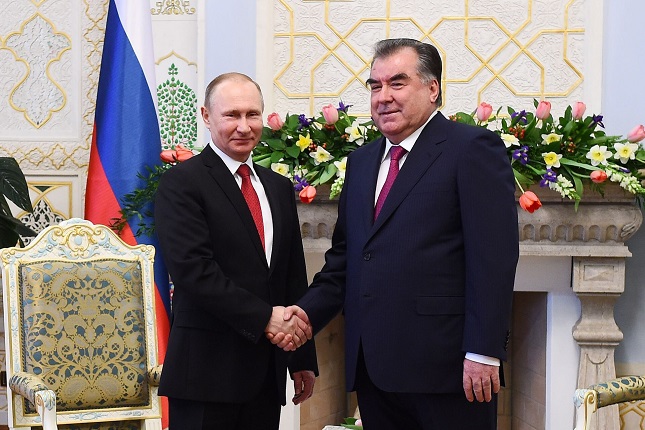
Russian President Vladimir Putin and President Emomali Rahmon will most likely be discussing Tajikistan's new course in Samarkand, Uzbekistan, scheduled to host the Shanghai Cooperation Organisation (SCO) summit on September 14-15, 2022. The SCO is an international organisation established on June 15, 2001, by the leaders of China, Russia, Kazakhstan, Tajikistan, Kyrgyzstan, and Uzbekistan. Photo: Flickr.com
Uzbekistan, too, is expanding its cooperation with the US. In August, President Shavkat Mirziyoyev met with a delegation of high-ranking members of the US Congress. The US has praised Uzbekistan's regime's inclusivity and has openly endorsed its "Islamification" and close contacts with the Taliban's leadership. The republic has already given the green light to the presence of dozens of Islamic foundations funded by Turkey, Saudi Arabia, and Qatar. President Mirziyoyev, who had not been known to be a religious person, recently performed the Umrah pilgrimage to Mecca. Tashkent has established close political and economic contacts with the Taliban and has welcomed delegations from Afghanistan regularly.
The consequences of this policy were not too long in coming. A month ago, tens of thousands of people enthusiastically greeted a Taliban delegation in the streets of Samarkand. Secular Tashkent, the country's capital, has turned into a place where burkas are a familiar and fast-selling commodity. There has been an increasing number of cases of husbands murdering their wives for refusing to wear the hijab, egged on by sermons of local preaching radicals. This frenzied Islamisation is happening amid mounting challenges that cast doubt on the country's territorial integrity. The riot in Karakalpakstan, shootouts on the border with Afghanistan, and the recent takeover of a border island on the Amu Darya by the Taliban that appears to be so well-liked in Tashkent all speak of the possibility of an imminent upheaval that could sweep the nation real soon.
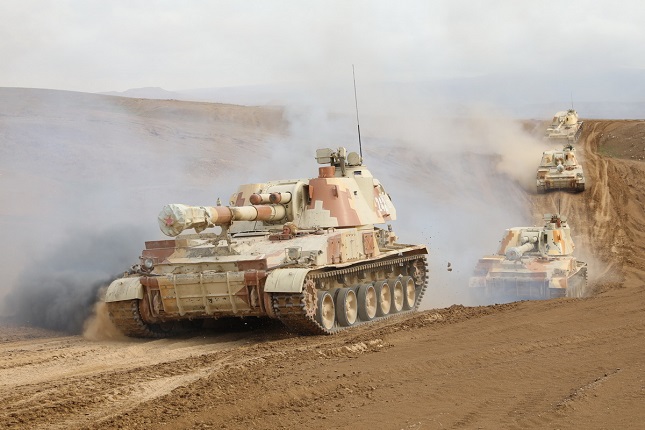
Russian military equipment involved in a military exercise in Tajikistan. The Russian military base was established in the country in accordance with an agreement between the governments of Russia and Tajikistan to maintain peace and security and to support Tajikistan's border troops and Defence Ministry. Photo: wikimedia.org
Should the situation in the region continue to escalate further, Russia will inevitably find itself drawn into the conflict. Its long and porous border with unfriendly Kazakhstan, the presence of large Uzbek and Tajik diasporas closely connected to their native countries, and the threat of a massive influx of potential refugees will force Moscow's hand. They will compel it to fight a war in Central Asia at the far reaches of its south-eastern borders, which is precisely what the US is after. Moscow's leadership seems to understand this very well. In late August, Defence Minister Sergei Shoigu said that Russia would raise the combat readiness of its military bases in Kyrgyzstan and Tajikistan in response to "serious security challenges" in Central Asia.
Main photo: Servicemen of the 201st military base in Tajikistan conducted more than 300 counter-terrorism exercises in 2020 © twitter.com
